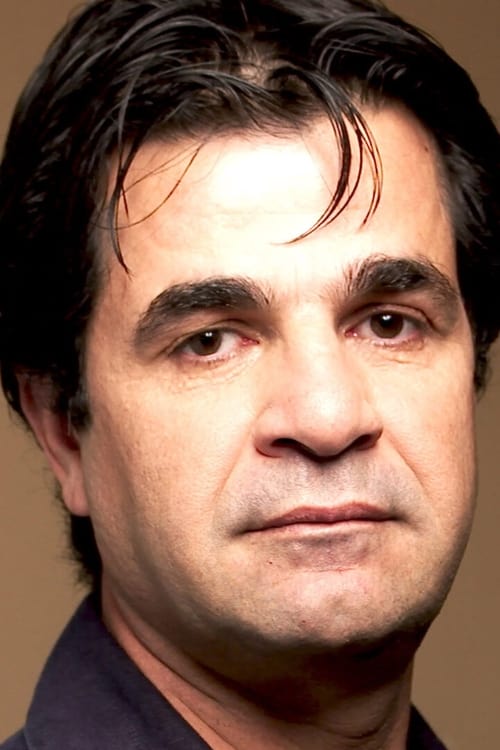
Self
On May 18, 2017, the Busan International Film Festival’s Program Director Kim Jiseok died suddenly and unexpectedly from a heart attack while on a business trip to the Cannes Film Festival. In the face of his unexpected demise, his old friends and colleagues in the film industry recall what tormented him in his last days.
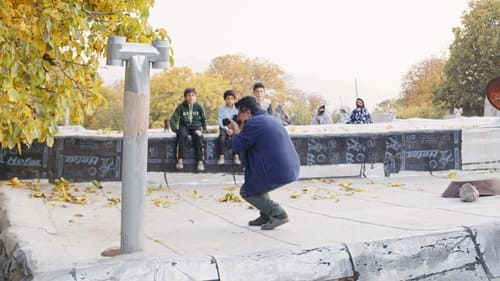
Producer
O filme retrata duas histórias de amor paralelas. Em ambas, os amantes são atormentados por obstáculos ocultos e inevitáveis, a força da superstição e a mecânica do poder.

Jafar Panahi
O filme retrata duas histórias de amor paralelas. Em ambas, os amantes são atormentados por obstáculos ocultos e inevitáveis, a força da superstição e a mecânica do poder.

Writer
O filme retrata duas histórias de amor paralelas. Em ambas, os amantes são atormentados por obstáculos ocultos e inevitáveis, a força da superstição e a mecânica do poder.

Director
O filme retrata duas histórias de amor paralelas. Em ambas, os amantes são atormentados por obstáculos ocultos e inevitáveis, a força da superstição e a mecânica do poder.
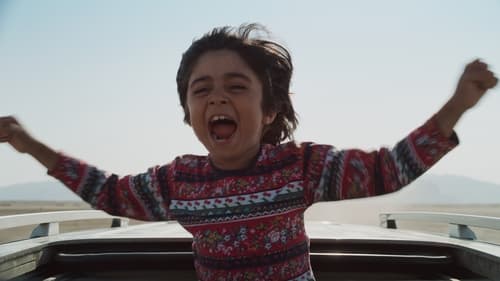
Producer
Uma família caótica e afetuosa viaja por uma paisagem acidentada, mas para onde? No banco de trás, o pai parece estar com uma perna quebrada, mas ela está realmente quebrada? A mãe tenta rir ao mesmo tempo em que não consegue conter as lágrimas. O filho mais novo fica agitado no karaokê coreografado que fazem no carro. Todos eles estão preocupados com o cachorro doente e irritando uns aos outros. Apenas o misterioso irmão mais velho permanece quieto.
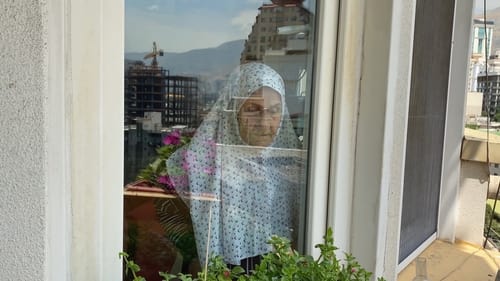
Featuring seven stories from seven auteurs from around the world, the film chronicles this unprecedented moment in time, and is a true love letter to the power of cinema and its storytellers.

Director of Photography
Featuring seven stories from seven auteurs from around the world, the film chronicles this unprecedented moment in time, and is a true love letter to the power of cinema and its storytellers.

Writer
Featuring seven stories from seven auteurs from around the world, the film chronicles this unprecedented moment in time, and is a true love letter to the power of cinema and its storytellers.

Executive Producer
Featuring seven stories from seven auteurs from around the world, the film chronicles this unprecedented moment in time, and is a true love letter to the power of cinema and its storytellers.

Director
Featuring seven stories from seven auteurs from around the world, the film chronicles this unprecedented moment in time, and is a true love letter to the power of cinema and its storytellers.

Director
A portrait of the Panahi family's matriarch as the pandemic makes it more difficult for intergenerational connection.

A portrait of the Panahi family's matriarch as the pandemic makes it more difficult for intergenerational connection.

Self
Secretly filmed in Iran for over two years, Nasrin is an immersive portrait of human rights activist and political prisoner Nasrin Sotoudeh and Iran’s remarkably resilient women’s rights movement. Nasrin has long fought for the rights of women, children, LGBT prisoners, religious minorities, journalists and artists, and those facing the death penalty. She was arrested in 2018 for representing women who protested Iran’s mandatory hijab law and sentenced to 38 years in prison, plus 148 lashes. Narrated by Academy Award-winning actress Olivia Colman and featuring acclaimed filmmaker Jafar Panahi, Nobel Peace Prize laureate Shirin Ebadi, journalist Ann Curry, exiled women’s rights activist Mansoureh Shojaee, and Nasrin Sotoudeh.
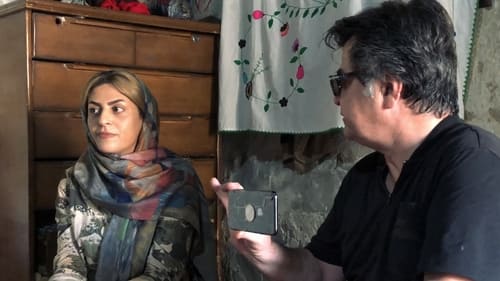
Director of Photography
O curta de Jafar Panahi acompanha a viagem do diretor, sua filha e um produtor de teatro até uma remota aldeia curda. Eles visitam uma cantora extremamente talentosa cuja família tradicional a proíbe de cantar em público e acabam descobrindo um segredo envolto em mistério.

Self
O curta de Jafar Panahi acompanha a viagem do diretor, sua filha e um produtor de teatro até uma remota aldeia curda. Eles visitam uma cantora extremamente talentosa cuja família tradicional a proíbe de cantar em público e acabam descobrindo um segredo envolto em mistério.

Director
O curta de Jafar Panahi acompanha a viagem do diretor, sua filha e um produtor de teatro até uma remota aldeia curda. Eles visitam uma cantora extremamente talentosa cuja família tradicional a proíbe de cantar em público e acabam descobrindo um segredo envolto em mistério.

Director
From an Iranian village to the Palais Garnier, from a hospital in Villejuif in the South of Algeria, voices are raised ... Four filmmakers, Julie Deliquet, Karim Moussaoui, Sergei Loznitsa and Jafar Panahi film songs of women and evoke in their own way, the world in which each of them lives.

Producer
Uma famosa atriz iraniana recebe um vídeo perturbador de uma garota implorando por ajuda para escapar de sua família conservadora. Ela então pede para seu amigo, o diretor Jafar Panahi, ajudá-la a descobrir se o vídeo é real ou uma manipulação. Juntos, eles seguem o caminho para a aldeia da menina nas remotas montanhas do norte, onde as tradições ancestrais continuam a ditar a vida local.

Jafar Panahi
Uma famosa atriz iraniana recebe um vídeo perturbador de uma garota implorando por ajuda para escapar de sua família conservadora. Ela então pede para seu amigo, o diretor Jafar Panahi, ajudá-la a descobrir se o vídeo é real ou uma manipulação. Juntos, eles seguem o caminho para a aldeia da menina nas remotas montanhas do norte, onde as tradições ancestrais continuam a ditar a vida local.

Writer
Uma famosa atriz iraniana recebe um vídeo perturbador de uma garota implorando por ajuda para escapar de sua família conservadora. Ela então pede para seu amigo, o diretor Jafar Panahi, ajudá-la a descobrir se o vídeo é real ou uma manipulação. Juntos, eles seguem o caminho para a aldeia da menina nas remotas montanhas do norte, onde as tradições ancestrais continuam a ditar a vida local.

Director
Uma famosa atriz iraniana recebe um vídeo perturbador de uma garota implorando por ajuda para escapar de sua família conservadora. Ela então pede para seu amigo, o diretor Jafar Panahi, ajudá-la a descobrir se o vídeo é real ou uma manipulação. Juntos, eles seguem o caminho para a aldeia da menina nas remotas montanhas do norte, onde as tradições ancestrais continuam a ditar a vida local.

Director
Jafar Panahi and fellow Iranian director Majid Barzegar take a 20-minute drive to Kiarostami’s grave, during which time “the two friends speak appropriately of cinema, but also censorship and festivals, police power and ideology.”

himself
Jafar Panahi and fellow Iranian director Majid Barzegar take a 20-minute drive to Kiarostami’s grave, during which time “the two friends speak appropriately of cinema, but also censorship and festivals, police power and ideology.”
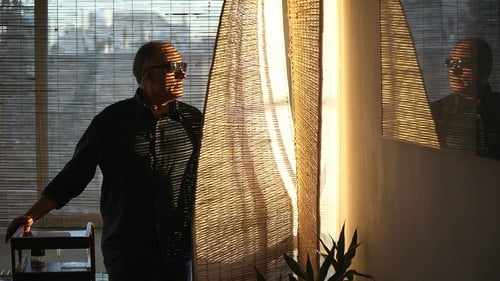
Himself
Kiarostami as we have never really known him before, despite the transformative power of his many movies. Filmmaker and close friend Samadian avoids the talking heads of so many artistic memoirs to offer more candid clips of Kiarostami the man: lover of poetry, convivial with friends, engaging landscapes on and off screen, laughing with other artists. The artist and visionary emerges more clearly but so does a loving, wondrous man whom we will miss now as much as the auteur.

Screenplay
Mr. Safari, an 80-year-old pensioner, lives alone and without direction. When his son, living abroad, tries to arrange for his elderly father to visit him, Mr. Safari becomes dangerously obsessed with a local female travel agent who is hired to help. Co-written by acclaimed filmmaker Jafar Panahi (Crimson Gold, Taxi), this provocative story delivers a quietly powerful statement about loneliness and those who get left behind in contemporary Tehran.

Editor
Neste falso documentário, apesar das restrições legais que lhe foram impostas, Jafar Panahi instala uma câmara dentro de um táxi e segue pelas ruas de Teerã. À medida que vai encontrando clientes e os conduz ao destino, vai encetando conversa. Os assuntos abordados vão criando uma espécie de mosaico da sociedade iraniana e abrangem vários temas, desde a política nacional, os costumes locais ou mesmo a liberdade de expressão no Cinema.

Director of Photography
Neste falso documentário, apesar das restrições legais que lhe foram impostas, Jafar Panahi instala uma câmara dentro de um táxi e segue pelas ruas de Teerã. À medida que vai encontrando clientes e os conduz ao destino, vai encetando conversa. Os assuntos abordados vão criando uma espécie de mosaico da sociedade iraniana e abrangem vários temas, desde a política nacional, os costumes locais ou mesmo a liberdade de expressão no Cinema.

Music
Neste falso documentário, apesar das restrições legais que lhe foram impostas, Jafar Panahi instala uma câmara dentro de um táxi e segue pelas ruas de Teerã. À medida que vai encontrando clientes e os conduz ao destino, vai encetando conversa. Os assuntos abordados vão criando uma espécie de mosaico da sociedade iraniana e abrangem vários temas, desde a política nacional, os costumes locais ou mesmo a liberdade de expressão no Cinema.

Producer
Neste falso documentário, apesar das restrições legais que lhe foram impostas, Jafar Panahi instala uma câmara dentro de um táxi e segue pelas ruas de Teerã. À medida que vai encontrando clientes e os conduz ao destino, vai encetando conversa. Os assuntos abordados vão criando uma espécie de mosaico da sociedade iraniana e abrangem vários temas, desde a política nacional, os costumes locais ou mesmo a liberdade de expressão no Cinema.

Screenplay
Neste falso documentário, apesar das restrições legais que lhe foram impostas, Jafar Panahi instala uma câmara dentro de um táxi e segue pelas ruas de Teerã. À medida que vai encontrando clientes e os conduz ao destino, vai encetando conversa. Os assuntos abordados vão criando uma espécie de mosaico da sociedade iraniana e abrangem vários temas, desde a política nacional, os costumes locais ou mesmo a liberdade de expressão no Cinema.

Self
Neste falso documentário, apesar das restrições legais que lhe foram impostas, Jafar Panahi instala uma câmara dentro de um táxi e segue pelas ruas de Teerã. À medida que vai encontrando clientes e os conduz ao destino, vai encetando conversa. Os assuntos abordados vão criando uma espécie de mosaico da sociedade iraniana e abrangem vários temas, desde a política nacional, os costumes locais ou mesmo a liberdade de expressão no Cinema.

Director
Neste falso documentário, apesar das restrições legais que lhe foram impostas, Jafar Panahi instala uma câmara dentro de um táxi e segue pelas ruas de Teerã. À medida que vai encontrando clientes e os conduz ao destino, vai encetando conversa. Os assuntos abordados vão criando uma espécie de mosaico da sociedade iraniana e abrangem vários temas, desde a política nacional, os costumes locais ou mesmo a liberdade de expressão no Cinema.

Producer
A man, his dog, a young woman and a filmmaker in a house by the Caspian Sea. All three are wanted, but they are also in search of each other. Thus begins an absurd game in which reality and fiction merge.

Editor
A man, his dog, a young woman and a filmmaker in a house by the Caspian Sea. All three are wanted, but they are also in search of each other. Thus begins an absurd game in which reality and fiction merge.

Screenplay
A man, his dog, a young woman and a filmmaker in a house by the Caspian Sea. All three are wanted, but they are also in search of each other. Thus begins an absurd game in which reality and fiction merge.

Himself
A man, his dog, a young woman and a filmmaker in a house by the Caspian Sea. All three are wanted, but they are also in search of each other. Thus begins an absurd game in which reality and fiction merge.

Director
A man, his dog, a young woman and a filmmaker in a house by the Caspian Sea. All three are wanted, but they are also in search of each other. Thus begins an absurd game in which reality and fiction merge.

Editor
Renowned Iranian director Jafar Panahi received a 6-year prison sentence and a 20-year ban from filmmaking and conducting interviews with foreign press due to his open support for the opposition party in Iran's 2009 election. In this film, which was shot secretly by Panahi's close friend Mojtaba Mirtahmasb and smuggled into France on a USB stick concealed inside a cake for a last-minute submission to Cannes, Panahi documents his daily life under house arrest as he awaits a decision on his appeal.

Cinematography
Renowned Iranian director Jafar Panahi received a 6-year prison sentence and a 20-year ban from filmmaking and conducting interviews with foreign press due to his open support for the opposition party in Iran's 2009 election. In this film, which was shot secretly by Panahi's close friend Mojtaba Mirtahmasb and smuggled into France on a USB stick concealed inside a cake for a last-minute submission to Cannes, Panahi documents his daily life under house arrest as he awaits a decision on his appeal.

Producer
Renowned Iranian director Jafar Panahi received a 6-year prison sentence and a 20-year ban from filmmaking and conducting interviews with foreign press due to his open support for the opposition party in Iran's 2009 election. In this film, which was shot secretly by Panahi's close friend Mojtaba Mirtahmasb and smuggled into France on a USB stick concealed inside a cake for a last-minute submission to Cannes, Panahi documents his daily life under house arrest as he awaits a decision on his appeal.

Director
Renowned Iranian director Jafar Panahi received a 6-year prison sentence and a 20-year ban from filmmaking and conducting interviews with foreign press due to his open support for the opposition party in Iran's 2009 election. In this film, which was shot secretly by Panahi's close friend Mojtaba Mirtahmasb and smuggled into France on a USB stick concealed inside a cake for a last-minute submission to Cannes, Panahi documents his daily life under house arrest as he awaits a decision on his appeal.

Self
Renowned Iranian director Jafar Panahi received a 6-year prison sentence and a 20-year ban from filmmaking and conducting interviews with foreign press due to his open support for the opposition party in Iran's 2009 election. In this film, which was shot secretly by Panahi's close friend Mojtaba Mirtahmasb and smuggled into France on a USB stick concealed inside a cake for a last-minute submission to Cannes, Panahi documents his daily life under house arrest as he awaits a decision on his appeal.

Writer
Renowned Iranian director Jafar Panahi received a 6-year prison sentence and a 20-year ban from filmmaking and conducting interviews with foreign press due to his open support for the opposition party in Iran's 2009 election. In this film, which was shot secretly by Panahi's close friend Mojtaba Mirtahmasb and smuggled into France on a USB stick concealed inside a cake for a last-minute submission to Cannes, Panahi documents his daily life under house arrest as he awaits a decision on his appeal.

Producer
A couple of children earn their living by playing music on the streets of Teheran. But a thief steals their accordion.

Editor
A couple of children earn their living by playing music on the streets of Teheran. But a thief steals their accordion.

Writer
A couple of children earn their living by playing music on the streets of Teheran. But a thief steals their accordion.

Director
A couple of children earn their living by playing music on the streets of Teheran. But a thief steals their accordion.

Editor
Rahmat travels to a host of islands in a vast salt pan in order to collect the inhabitant's tears for an unknown purpose. He is joined on his mysterious journey by a young boy searching for his father. As their travel nears its end, a potent critique of the Iran's political leadership emerges.
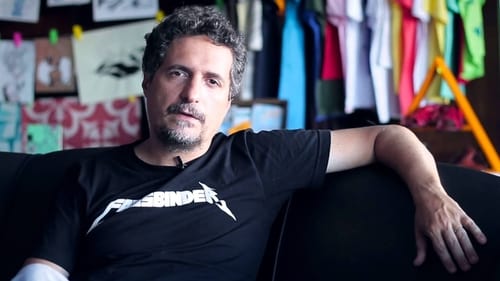
Self
Críticos e cineastas discutem o cinema a partir do interessante conflito entre artista e observador. Eles debatem as reações às opiniões e a difícil imparcialidade, num diálogo entre profissionais de atuações opostas.

Screenplay
Persian Carpet is an omnibus film produced by Iran's National Carpet Center and Farabi Cinema Foundation where 15 renowned Iranian directors contributed films on the subject of Persian carpet. Carpets are the reflection of the cultural and historical identity of Iran.

Director
Persian Carpet is an omnibus film produced by Iran's National Carpet Center and Farabi Cinema Foundation where 15 renowned Iranian directors contributed films on the subject of Persian carpet. Carpets are the reflection of the cultural and historical identity of Iran.

Director
Jafar Panahi's short film, shot with one uninterrupted long take, about siblings trying to sell a carpet in need of money.

Producer
During the 2006 World Cup qualifying match between Iran and Bahrain, numerous young women are caught and rounded up for dressing as men so they could gain access to the game. Guarded by several soldiers in a holding pen, the women attempt to keep updated on the score.

Writer
During the 2006 World Cup qualifying match between Iran and Bahrain, numerous young women are caught and rounded up for dressing as men so they could gain access to the game. Guarded by several soldiers in a holding pen, the women attempt to keep updated on the score.

Director
During the 2006 World Cup qualifying match between Iran and Bahrain, numerous young women are caught and rounded up for dressing as men so they could gain access to the game. Guarded by several soldiers in a holding pen, the women attempt to keep updated on the score.

Himself
Today Iranian cinema is one of the most highly regarded national cinemas in the world, regularly winning festival awards and critical acclaim for films which combine remarkable artistry and social relevance. Iran: A Cinematographic Revolution traces the development of this film industry, which has always been closely intertwined with the country's tumultuous political history, from the decades-long reign of Reza Shah Pahlevi and his son, the rise of Khomeini and the birth of the Islamic Republic, the seizure by militants of the U.S. Embassy in Tehran, and the devastating war with Iraq.

Editor
A young widow takes over her late husband’s truck stop café, keeping hidden in the kitchen so as not to cause a scandal in Iran’s conservative society. But her brother-in-law, out of familial obligation, wants to take her as a wife and also take over the café. Meanwhile a Greek trucker who is a frequent café customer is slowly entranced — at first by her sublime cooking ability, and then by her.

Self
Tracing the history and influence of Iranian cinema and its filmmakers.
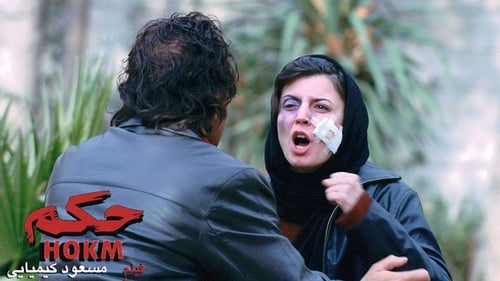
Editor
Sahand, Mohsen and Foroozande are attacking engineer Kazem's house on a rainy night and steal the house and injure him. They decide to flee Forouzande from Iran to another country. They go ...

Editor
The story of four soldiers who on a Friday go to the city with their commander. But this Friday is different and brings many troubles for them which changes them forever.

Twenty years after The Traveler was made, Kiarostami's son filmed his father as he reunited with the film's child star, now in his 30s.

Producer
Hussein é um entregador de pizza pobre que diariamente entra em contato com os contrastes entre o mundo dos pobres e dos ricos, ao fazer seu trabalho em bairros nobres, onde vê diversas mansões e muita riqueza. Após ser impedido de entrar em uma joalheria por sua aparência, ele e o amigo Ali assaltam o lugar, como forma de vingança.

Editor
Hussein é um entregador de pizza pobre que diariamente entra em contato com os contrastes entre o mundo dos pobres e dos ricos, ao fazer seu trabalho em bairros nobres, onde vê diversas mansões e muita riqueza. Após ser impedido de entrar em uma joalheria por sua aparência, ele e o amigo Ali assaltam o lugar, como forma de vingança.

Director
Hussein é um entregador de pizza pobre que diariamente entra em contato com os contrastes entre o mundo dos pobres e dos ricos, ao fazer seu trabalho em bairros nobres, onde vê diversas mansões e muita riqueza. Após ser impedido de entrar em uma joalheria por sua aparência, ele e o amigo Ali assaltam o lugar, como forma de vingança.
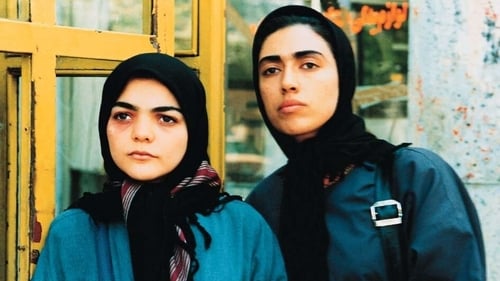
Idea
Três mulheres acabam de receber indultos temporários para deixar a prisão. As perspectivas, porém, são as piores. Mesmo em liberdade elas se sentem em uma grande prisão, com os direitos reduzidos e cerceados pelos homens.

Editor
Três mulheres acabam de receber indultos temporários para deixar a prisão. As perspectivas, porém, são as piores. Mesmo em liberdade elas se sentem em uma grande prisão, com os direitos reduzidos e cerceados pelos homens.

Producer
Três mulheres acabam de receber indultos temporários para deixar a prisão. As perspectivas, porém, são as piores. Mesmo em liberdade elas se sentem em uma grande prisão, com os direitos reduzidos e cerceados pelos homens.

Director
Três mulheres acabam de receber indultos temporários para deixar a prisão. As perspectivas, porém, são as piores. Mesmo em liberdade elas se sentem em uma grande prisão, com os direitos reduzidos e cerceados pelos homens.
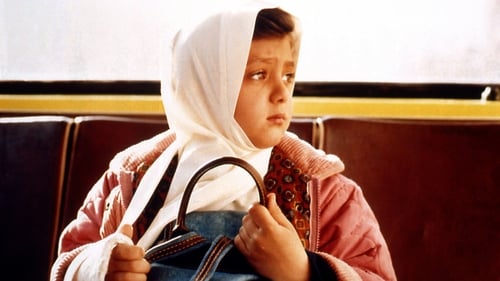
Producer
When a young girl's mother doesn't meet her after school, she tries to navigate the streets of Tehran by herself.

Editor
When a young girl's mother doesn't meet her after school, she tries to navigate the streets of Tehran by herself.

Writer
When a young girl's mother doesn't meet her after school, she tries to navigate the streets of Tehran by herself.

Director
When a young girl's mother doesn't meet her after school, she tries to navigate the streets of Tehran by herself.
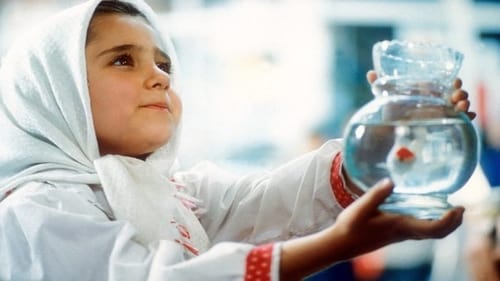
Editor
Several people try to take advantage of a little girl's innocence to hustle money her mom gave to her to buy a goldfish with.

Director
Several people try to take advantage of a little girl's innocence to hustle money her mom gave to her to buy a goldfish with.
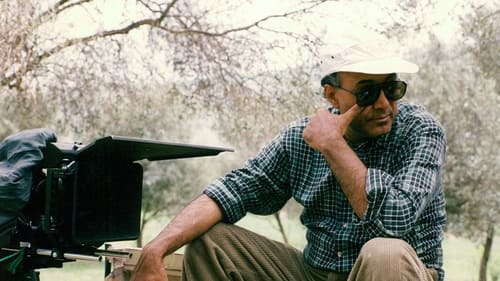
Self
A documentary by Hamideh Sharif Rad about Abbas Kiarostami's "Through the Olive Trees" (1994).
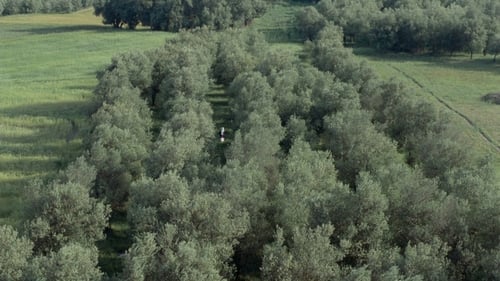
Self
Uma equipe de cinema chega a uma pequena cidade no norte do Irã, devastada por um tremor de terra, para realizar um filme. Hossein (Hossein Rezai) é contratado para ser o protagonista. Por acaso, a atriz que contracena com ele é Tahere (Tahere Ladanian), uma jovem por quem ele está apaixonado, mas que a família tinha recusado para o casamento. Enquanto ele diz todas as suas falas, Tahere permanece calada. O diretor descobre o amor platônico que Hossein sente por Tahere. Após algumas pressões, Tahereh aceita atuar normalmente e começa a cumprir seu trabalho. Mas não é fácil, ao menos para Farhad - na história que está sendo filmada, eles são recém-casados. Nos intervalos entre os takes, ele tenta de todas as maneiras obter uma resposta de sua amada. Entretanto, ela não parece muito interessada em responder.

Assistant Director
Uma equipe de cinema chega a uma pequena cidade no norte do Irã, devastada por um tremor de terra, para realizar um filme. Hossein (Hossein Rezai) é contratado para ser o protagonista. Por acaso, a atriz que contracena com ele é Tahere (Tahere Ladanian), uma jovem por quem ele está apaixonado, mas que a família tinha recusado para o casamento. Enquanto ele diz todas as suas falas, Tahere permanece calada. O diretor descobre o amor platônico que Hossein sente por Tahere. Após algumas pressões, Tahereh aceita atuar normalmente e começa a cumprir seu trabalho. Mas não é fácil, ao menos para Farhad - na história que está sendo filmada, eles são recém-casados. Nos intervalos entre os takes, ele tenta de todas as maneiras obter uma resposta de sua amada. Entretanto, ela não parece muito interessada em responder.

Director
This is the first fiction short movie of Panahi, who offers us his vision on what it is like to be a young boy and is considered to be an homage to Abbas Kiarostami's 'Bread and the Alley'

Director
Second arrative short starring non-professional.

Director
Panahi's graduation film is an imaginary behind-the-scenes documentary short on the making of Kambuzia Partovi's film Golnar. It focuses on the puppet maker for Partovi's film and his relationship with his puppets.

Director
Documentary about the illegal mourning tradition of head slashing in the Azerbaijan region of northern Iran. In the film, Panahi documented a mourning ceremony for the third Shi'ite Imam, Imam Hossein, where people hit their heads with knives until they bled. Panahi had to shoot in secret and the film was banned for several years.
